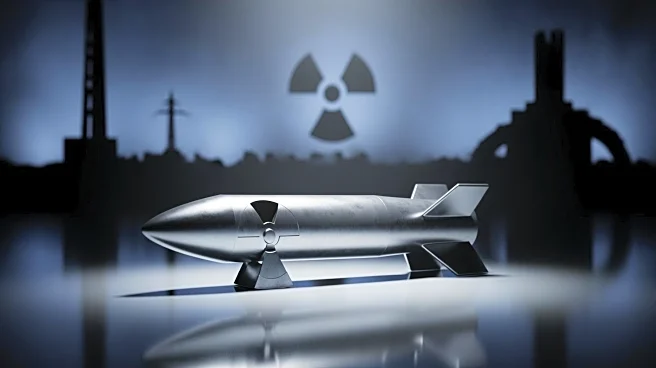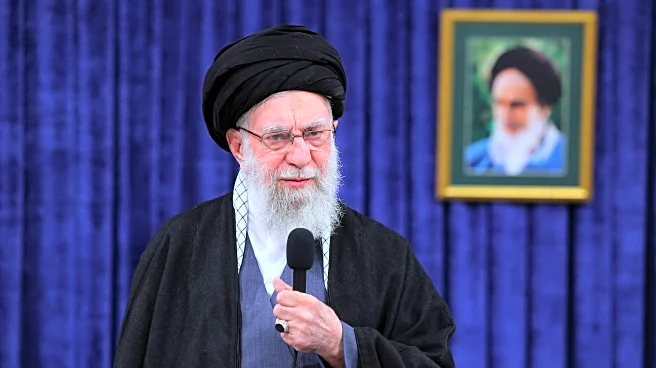What's Happening?
Russian Foreign Minister Sergey Lavrov announced that the Kremlin is developing proposals for nuclear weapons testing, following President Trump's recent comments about resuming atomic tests. President Trump suggested that the United States would restart
nuclear testing to maintain parity with Russia and China. This marks a significant shift, as the U.S. has not conducted nuclear tests since 1992, adhering to a voluntary moratorium. Lavrov stated that Russia is acting on President Vladimir Putin's directive to prepare for potential nuclear tests, although the specifics of these tests remain unclear. The announcement comes amid heightened global tensions regarding nuclear capabilities.
Why It's Important?
The potential resumption of nuclear testing by major powers like the U.S. and Russia could have significant geopolitical implications. It may lead to increased global tensions and a potential arms race, as countries strive to demonstrate their nuclear capabilities. This development could impact international relations, particularly with nations that have historically opposed nuclear proliferation. Additionally, the environmental and ethical concerns surrounding nuclear testing could spark public debate and opposition. The move may also affect global disarmament efforts, complicating negotiations aimed at reducing nuclear arsenals worldwide.
What's Next?
The international community is likely to closely monitor the situation, with potential diplomatic responses from other nuclear-capable nations. The U.S. Congress may debate the implications of resuming nuclear tests, considering both national security and environmental impacts. Meanwhile, Russia's proposals for nuclear testing could lead to further discussions within international forums, such as the United Nations, regarding nuclear non-proliferation treaties. Stakeholders, including environmental groups and disarmament advocates, may increase pressure on governments to reconsider their stance on nuclear testing.
Beyond the Headlines
The resumption of nuclear testing could have long-term consequences for global security and environmental health. It may challenge existing treaties and agreements aimed at curbing nuclear proliferation, potentially leading to a reevaluation of international norms. The ethical implications of nuclear testing, including its impact on human health and the environment, could become a focal point for advocacy groups. Additionally, this development may influence public opinion on nuclear policy, prompting calls for greater transparency and accountability from governments.


















